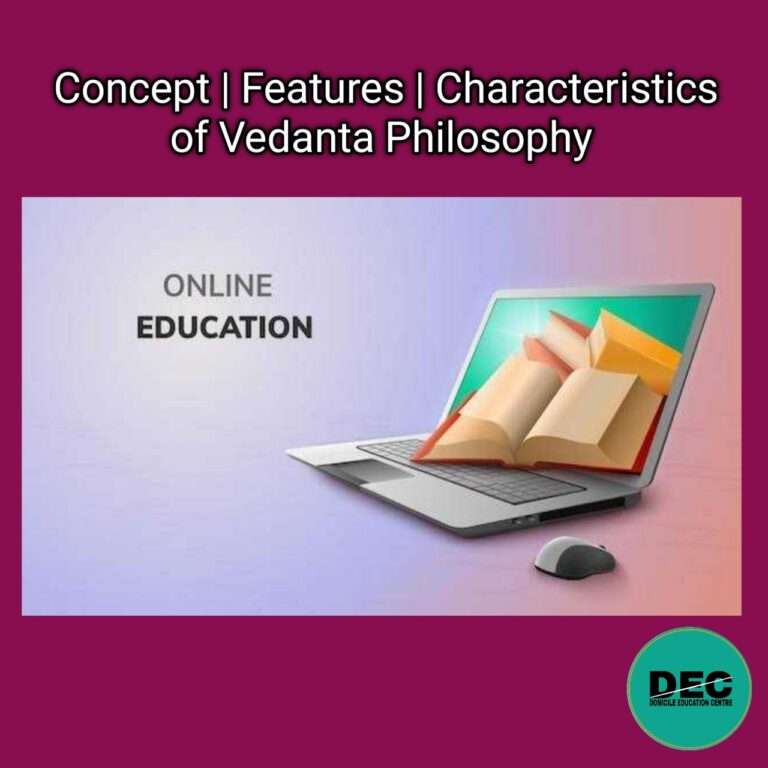Table of Contents
ToggleConcept | Features | Characteristics of Vedanta Philosophy |
Vedanta Philosophy
Here You will get the answer about-
- Meaning and concept of Vedanta Philosophy.
- Features or Characteristics of Vedanta Philosophy.
1. What is the meaning and concept of Vedanta Philosophy?
Ans: Vedanta philosophy is one of the six astika orthodox school of philosophy which is also known as Uttara Mimamsa. It is based on Upanishad (the end portion of Vedas). This school of philosophy refers not only a single doctrine of tradition but also refers to many sub-traditions which is based on the Prasthanatrayi. The Prasthanatrayi contains three basic texts or axioms of Hindu philosophy that includes:
(a) The Upanishad.
(b) The Brahma sutra.
(c) The Bhagavad Gita.
All the three traditions of Vedanta philosophy deals with mainly with the Brahman– the ultimate metaphysical reality, Atman or Jivatman– the individual soul or self, and Prakrti– the empirical word or the physical universe or the body and matter. They believed that the world is unreal and the only reality is Brahman. According to Vedanta, the ultimate goal of a human life is salvation and true education is one, which leads towards salvation.
2. Enumerated the salient features or characteristics of Vedanta philosophy.
Ans: The features or characteristics of Vedanta philosophy are enumerated in the following below:
(i) This school of philosophy refers not only a single doctrine of tradition but it also refers to many sub-traditions which is based on the Prasthanatrayi.
(ii) Vedanta philosophy believes in three fundamental metaphysical categories. These are: (a) The Brahman or God. (b) Atman or Jivatman, (c) Prakriti or Gagat.
iii. Vedanta Philosophy deals mainly with the Brahman. They believed that the world is unreal and the only reality is Brahman.
iv. There are some sub-traditions or schools of Vedanta philosophy which includes – Advaita (Adi Sankara), Vishishtadvaita (Ramanuj), Dvaita (Madhavacharya), Suddhadvaita, Bhedabheda (Chaitanya Mahaprabhu), Dvaitadvaita (Nimbarka).
(v) The different schools of Vedanta differ in their views about the relationships between Atman and Brahman.
(vi) All the schools of Vedanta accept that, knowledge can not take place in the absence of mind where knowledge is gained in the form of thought only.
(vii) The different schools of Vedanta accept different Paramans to be epistemologically valid.
Calendar of Content List:
| M | T | W | T | F | S | S |
|---|---|---|---|---|---|---|
| 1 | ||||||
| 2 | 3 | 4 | 5 | 6 | 7 | 8 |
| 9 | 10 | 11 | 12 | 13 | 14 | 15 |
| 16 | 17 | 18 | 19 | 20 | 21 | 22 |
| 23 | 24 | 25 | 26 | 27 | 28 | 29 |
| 30 | 31 | |||||

